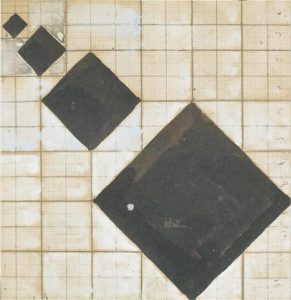Corresponding Authors (Letter 3 of 9)
Dear Amy:
It took two weeks for your letter to arrive, which is a month after I sent my questions, so I’m going to pack a lot in here. Hopefully it will all be legible.
I like what you said about the Dear Editor Amy Newman’s poetry mind taking over her letter mind, and that these are both different than the writing-online mind. If there is a spectrum though, the poetry mind has to be closer to the letter-writing mind, in my mind at least. I realized that the way I worded the question in my letter about whether or not you imagined the letters in Dear Editor as physical or electronic seemed to ignore the coda of “I have enclosed a SASE” that appears in almost all of the letters in the book. That phrase grounds them as physical, but the letter-writer as a character – if it even should be considered a character is debatable – is so unreliable, or the worlds of her letters so subject to imagination. I don’t take anything she says for granted. Do you? Is there a letter in the book that describes a reality that takes precedence over the others? Or are they all equally valid/false?
I have a narrative love of destroying worlds: in The Voyager Record I have repeated images of the record being discovered. Like in Dear Editor, each subsequent entry destroys the world created in the last. Is there a malice inherent to writing in that style, either on your part or the character’s? It’s not just destroying worlds, we’re destroying images readers construct in their minds. That’s something very intimate to take away from a person. Or maybe you don’t see it as destructive, but as something else. Quitting?
Anne Sexton, who you wrote about in your recent book On This Day in Poetry History once had a letter exchange with a monk, who wound up falling in love with her. Or so he thought: Sexton rebuffed him, saying that their relationship wasn’t real: it was a “letter relationship” and that in a letter “it is more possible to be loving and lovable… the words can fly out of your heart (via the fingers) and no one really need live up to them.” That is a statement that makes me very anxious. Recently, I started to believe that the relationships we have that are based in text—whether they’re online or in letters—provide us with a way to transcend meat world, so to speak. Not in a way that makes it superior, just supplementary to a single, hide-bound existence. Aren’t people just as capable of making themselves loving and lovable in real life without having to live up to it? Don’t we have the capacity for meanness and harm in written correspondence as well? Do you agree with Sexton on this do letters only create illusory relationships, as make believe as the lives in Dear Editor? Maybe Sexton was just trying to let the guy down gently?
In On This Day in Poetry History you take several famous 20th century poets and illustrate different moments, sometimes unexpected, from their lives. They’re definite moments, about definite people: was that a reaction to the indefiniteness and insignificance of the Dear Editor persona?
I say “insignificance” because submissions make writers assume that position when they send their work out for consideration. Were there specific journals & magazines that you imagined specific letters in Dear Editor being addressed to? Was there a New Yorker letter, a Ploughshares letter, a Paris Review letter, etc.? Have you ever read through the cover letters in a slush pile yourself?
This book seems like it contains its own antitheses: there should be a collection of form rejections sent to the writer in response. Have you ever written any of those, either in the early drafts of the book, or just as an experiment?
It’s the same with the manuscript being shopped around in the book, X = Pawn Capture: Do those poems exist?
I chose this notecard because the painting (Arithmetic Composition by Theo van Doesburg) reminded me as a distorted chessboard, a variation of the game the grandfather in Dear Editor might play. What painting would you pick to illustrate the grandmother’s kitchen & saints & despair?
Thanks for taking the time to answer these Q’s!
Anthony


